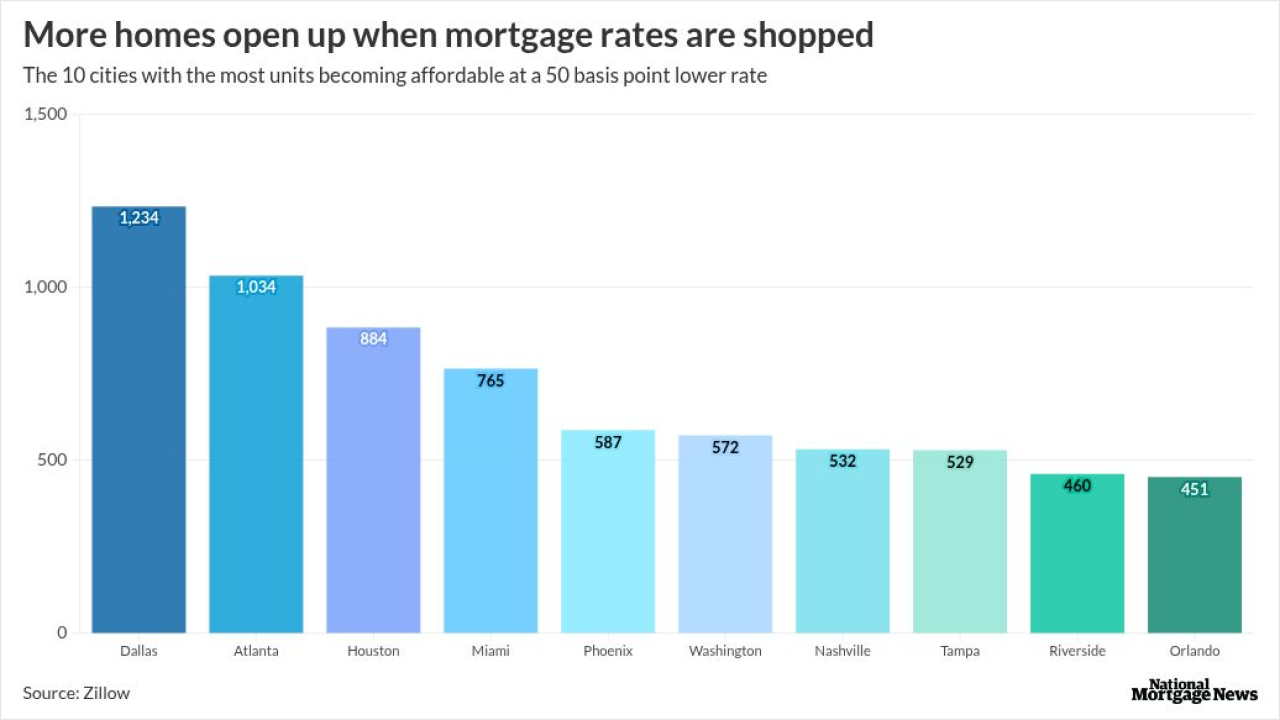Although artificial intelligence is not yet capable of handling a mortgage from start to finish, several lenders are increasingly turning to the technology for a variety of scenarios.
Chief among them is pairing AI-based chatbots with mortgages. Rocky Stubbs, who at Capital One helped develop one of the first Alexa skills for home loans, says AI will soon be more ubiquitous.
“That first Alexa Skill was very simple, just, ‘Hey Alexa, make my mortgage payment,’” said Stubbs, who is now senior vice president and head of consumer direct and digital mortgage lending at Flagstar Bank. “The use cases for the various systems are reactive: we ask them something and they complete one task.”

But over time, just as Siri can recognize traffic patterns and predict a slow commute, chatbots will start to learn about users’ financial profiles and offer predictions and advice around finances.
Instead of being siloed, the way Siri, Cortana and Alexa are, the next wave of virtual assistants will be more like Jarvis from Iron Man, Stubbs said.
“No matter where [Tony Stark] went, it was in his suit, in the car, in the house,” Stubbs pointed out. “That assistant is going to become much more familiar. We’re going to be able to interact with it in a lot more different ways.”
This kind of technology could be used to prequalify people for mortgages.
“There's even a world where your Jarvis is interacting with someone else’s Jarvis and they're hashing out things before a human being comes into the experience,” Stubbs said.
Another use for AI and bots in mortgages is to help fill out the application.
With the use of speech recognition and natural language processing, an assistant could listen to a conversation between the loan officer and a potential borrower and start extracting data. That could save time and potentially reduce errors.
AI could also be used to help underwriters search databases consistently for compliance purposes.
“Today there's tremendous amounts of content and the guidelines from all the regulators and the investors that an underwriter needs to have at their fingertips and they take a lot of time searching through those to find something relevant,” Stubbs said. Jane.ai and IBM’s Watson, for example, can ingest that kind of data and answer questions about regulatory guidelines.
“It's one of those problem domains where voice and chat make sense because there's a huge amount of information; it's too vast for a person to navigate,” he said.
Fannie Mae is already using AI to help predict if a loan is going to go into default, according to Mona Kahn, director of securitization and servicing technology at Fannie Mae.
In another use case, Fannie is a consumer of customer comments or “tips” made through a bot as well as through calls and emails.
“We’re doing natural language processing work looking at, how do we predict if that's really a true fraud tip?” said Kahn. AI can help figure out what those patterns are.
At TIAA Bank, David Andrews, vice president of home lending strategy, is building out a use case for AI that helps avoid disappointing borrowers.
“A problem we had was we set the expectations up front and then we would find something out two weeks down the road because it was buried in some document a loan officer glossed over or a processor didn't catch,” Andrews said.
When the loan finally got to underwriting, the problem would be discovered — a judgment, say, or a lien on credit.
The bank is using Blend’s version of AI and machine learning to uncover such problems closer to the time of the loan application. Loan officers review this work, however, as the technology is still new.
In the bank’s call center, Andrews sees an opportunity for an AI engine to present product choices to the loan officer as they’re talking with the customer, so that they don’t have to memorize product information.
With any of these use cases, it behooves the financial industry to start actively working with virtual assistants, Stubbs said.
“Waiting for others to do the first moving and break things so we can take best practices and go for it is fine,” he said. “But to put our heads in the sand and say we're going to wait until everybody solves it so that we can catch up is absolutely the wrong move.”





